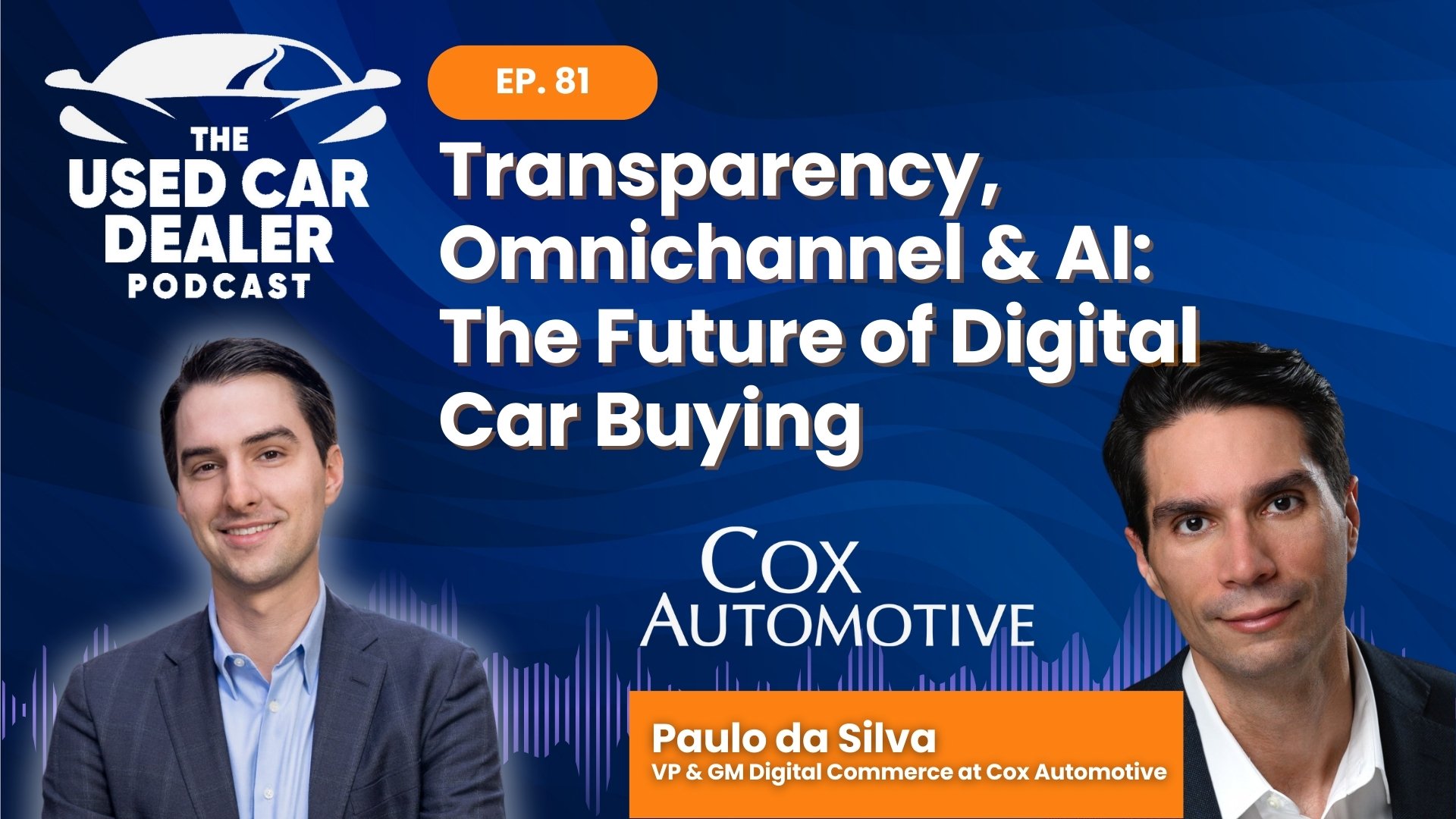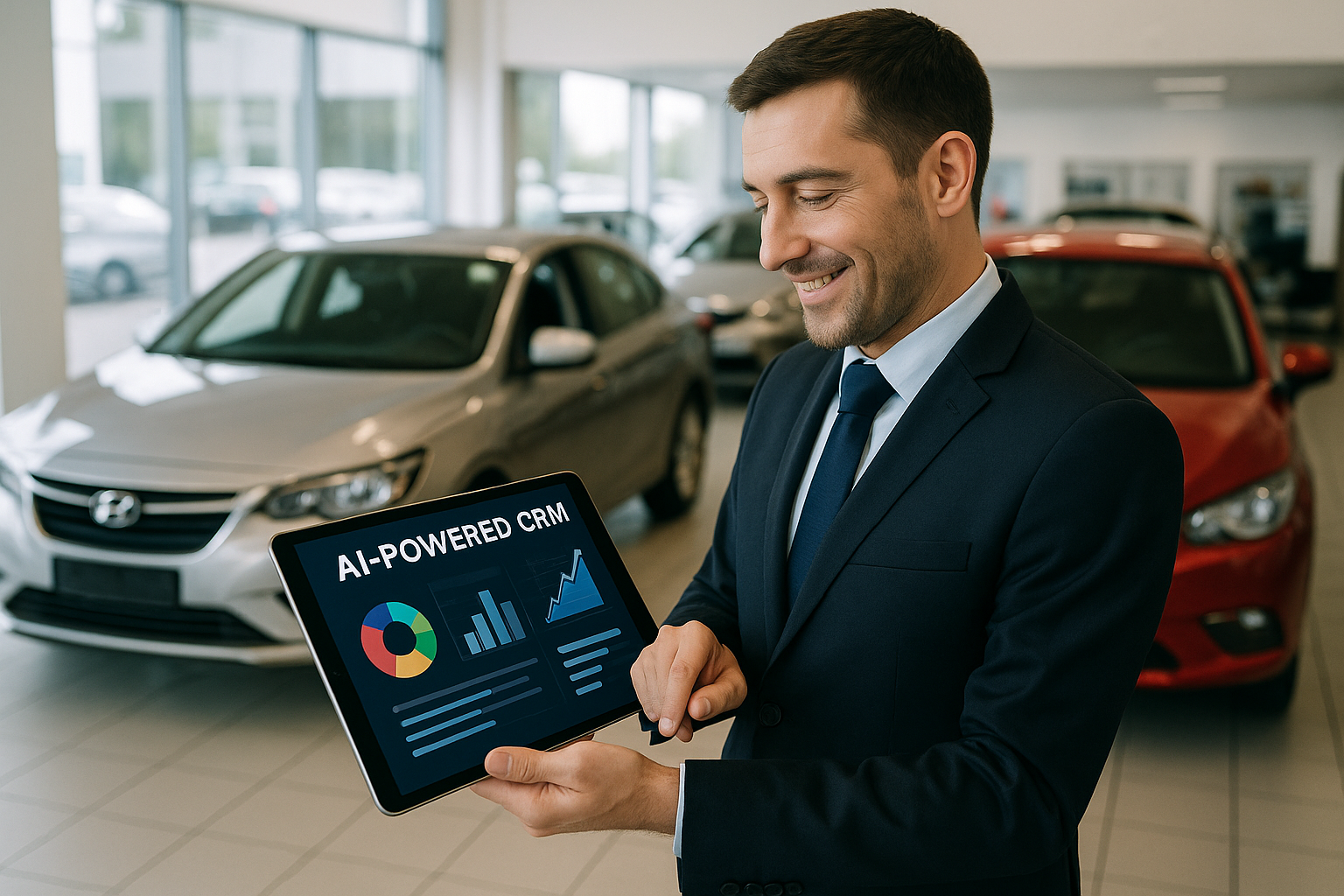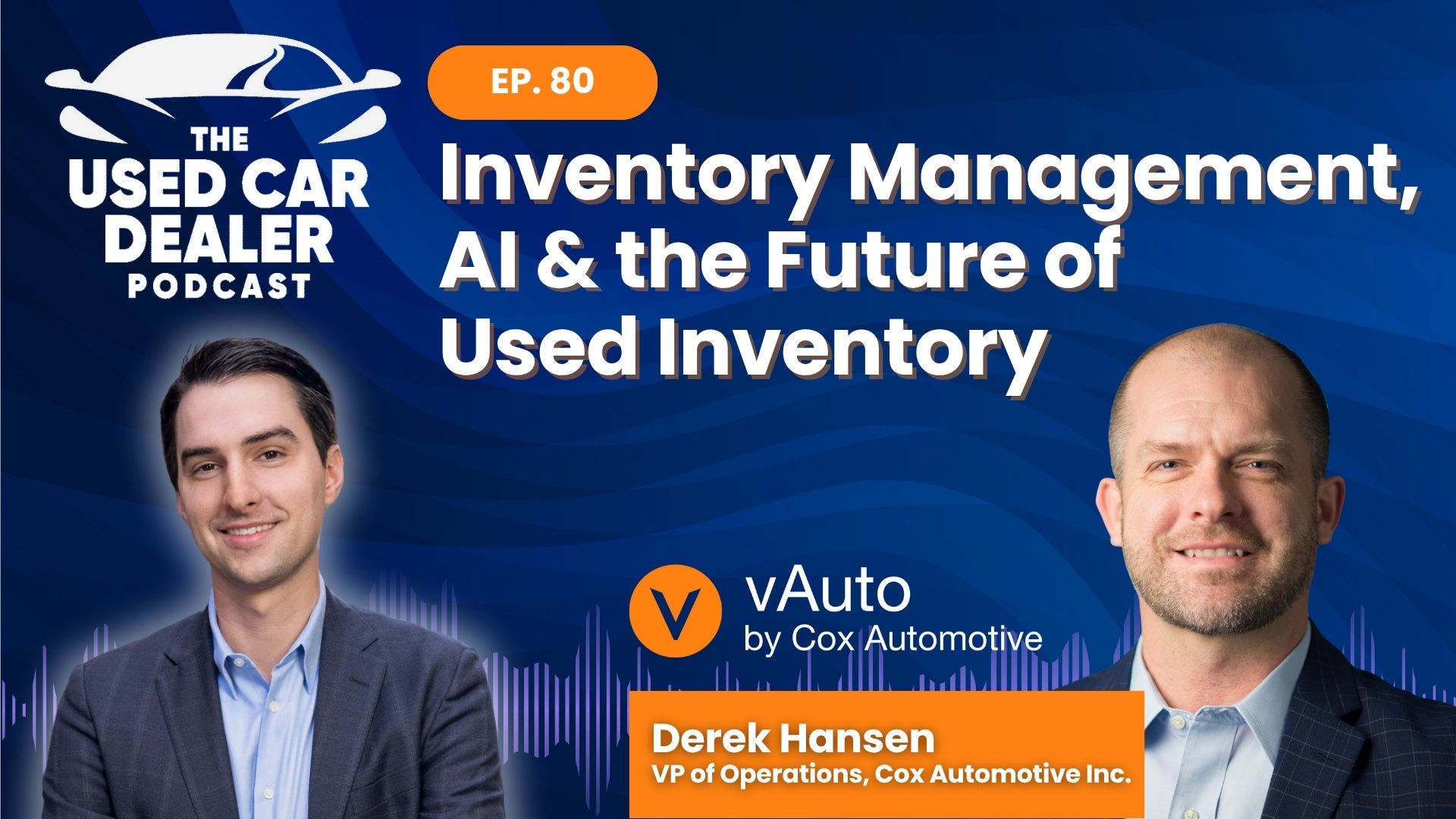In this episode of the Used Car Dealer Podcast, Zach interviews Bob Voltmann, CEO of NIADA. They discuss the big focuses of NIADA for 2023, predictions on the used car marketplace, and the upcoming NABD Super Forum (https://bhphsuperforum.com) November 9th, 2022.
Zach Klempf: Zach here today, and we have a guest on the podcast who's had a couple of appearances already, Bob Voltmann, the CEO of NIADA, which also operates the NABD BHPH Super Forum. Bob, thanks so much for joining me on the podcast today.
Bob Voltmann: Great to be here, Zack. Thank you for having me again!
Zach Klempf: You just finished the National Policy Conference in Washington DC. How did that go and what came out of the conference as major action items in Washington for NIADA?
Bob Voltmann: It was a great conference. We had really good attendance from members and our vendor partners. It is our annual call in Washington. While we now have full-time Washington DC staff that are meeting with members of Congress and the regulators regularly, this is the one time of year when we bring as many members as we want to come to meet with their members of Congress, to meet with the regulators, to interact with each other. It was great. This is an election year, as we fully are aware. So we had representatives from the Republican Congressional Campaign Committee and the Democratic Congressional Campaign Committee. We had Amy Walter from the Cook Political Report getting updates. Most importantly from a dealer standpoint, we had the director of the CFPB, Rohit Chopra. He and I did a sit-down fireside chat to kick the conference off. He was charming, and he said, I want you all to understand I don't wake up every morning thinking about used car dealers, and I don't want you waking up every morning thinking about me. I said, well, they're really glad to hear that because they and they're also glad to see you don't have three heads. And he said I don't have three heads. But we talked about what the agency is seeing, what it is concerned about. And he said, watch the complaints. That's what we do, we watch the complaints. And so we're working with the staff to figure out how we can get a better handle on the complaints and the magnitude of them and the patterns within those.
We talked about NIADA and his staff working together, and most recently they reached out, and the CFPB staff reached out to us to talk about it.
And they wanted to know more about lease here, pay here as an option. We talked a lot about the FTC and the rules there, the safeguard rules, and the new rules that they're contemplating. We just submitted comments that they think are going to speed up the car-buying process. And we know, quite frankly, they're going to make the car buying process hours longer with all the new paperwork. So we also met with many members of Congress, including people the member of Congress will be the committee chair overseeing the FTC. If the House flips, the Republicans take control. And we talked about that.
We talked about a letter circulating to delay the rule implementation, to give everybody more time to think through it. So it was a great meeting. Lots of hill visits, lots of meetings, like that, interaction between members. I can't imagine why people don't come to DC. To be a part of this.
Zach Klempf: And speaking of DC. You spend a lot of time there. What did you learn about what makes Washington move to get new policies in place for organizations like TIA or the NIADA?
Bob Voltmann: I spent 32 years in Washington, DC. My wife and I came up. We were in the George W. Bush administration. And then I've worked in trade associations since then, implementing policy. The thing they are saying about Washington and people who come to Washington, nobody comes here wanting to do the wrong thing, make it positive. Everybody comes here wanting to make a difference and make that a positive difference, their positive difference. My positive difference may be different, but everybody wants to do the right thing. And so it's finding that common ground and talking to each other. And the other thing about Washington is it's a 365-day-a-year community. It's like, I imagine Silicon Valley, it's a very small community and everybody is tied together, that's how Washington is. Go to the same schools, go to the same churches, go up to the same grocery stores, live in the same neighborhoods, and kids go to the same schools. So you're interacting constantly. And that interaction is what brings about policy. It's also about control. Who controls the House, who controls the Senate, who controls the White House? And this is an election year and we get to do that. But from the lobbying standpoint, it's making connections. It's telling our story, having our members tell their story in a way that legislators and regulators understand.
Zach Klempf: So my next question is, what exactly is the NABD Super Forum? And why should buy here pay here dealers attend this event?
Bob Voltmann: So it's all about buy here, pay here dealers, and right now, buy here pay here dealers and lease here pay here dealers are, it's about the best of times and the worst of times. To quote Mr. Dickens, it's the worst of times because the FTC safeguard rules are going into effect December the 9th, I'm hell or high water at this point, they're going into effect. And I talk to a lot of dealers and they're like, oh yeah, but they won't catch me. The problem with the safeguard rules is it's not the agency catching you, it's that there'll be a data breach. And under your state's Uniform Commercial Code, you'll be sued by a private attorney putting a class action together. So every dealer needs to begin this process and have something in place by December the 9th when they're in big trouble. The Super Forum, we have 4 hours dedicated to just the safeguard rule and getting those mechanisms in place so that you can walk out of there with your plan pretty much done. We've also been promoting the Texas Independent Automobile Dealers Association, our Texas affiliate, they have training videos for both employees and qualified individuals.
This is important and dealers have to deal with it. And it applies to all dealers. There's been some confusion over this 5000-record level. There are just a couple of additional steps for those dealers with 5000 records. And those are 5000 individual records, not 5000 sales. Big difference. It's a huge difference. It is 50 pieces of identifying information. So it kind of gets very quickly. A dealer can get to that level, but every dealer has to comply. So that's what the super forum is. All about its dealers helping dealers. It's NIADA helping dealers. And it's getting ready for this safeguard rule.
Zach Klempf: And I love that! And any interesting observations, specifically on the buy BHPH market in your lens at NIADA?
Bob Voltmann: Again, it's the best of times and the worst of times. Whether Washington, whether the White House admits it or not, we're in a recession. Interest rates are going through the roof and the Feds are not done. They're going to continue to raise these interest rates. So we have a new car shortage because of chips. We now have higher interest rates. And for every time the Fed increases the rate, it takes 18 months for that to work completely through the economy. So just because the Fed raises rates doesn't mean your rent is going to go up this month. It's going to go up when you renew chickens. It may cost more right now because it costs more to grow chickens, but it's going to take a year and a half, two years for all of these rate increases to be absorbed into the economy. So what does that mean? It means that fewer people are going to be able to buy new cars. It means more and more people are going to be pushed into the subprime market at a time when it's still difficult to get inventory and get that inventory so that you can sell it at a price that those people can afford to buy.
So it's the best of times because the Buy Your Pay Here dealers are going to have more customers and more demand for their vehicles, and it's going to be tougher and tougher to compete in that space.
Zach Klempf: And let me ask you more specifically about the NIADA. So when it comes to issues like what you're discussing that directly impact used car dealers, what are some big initiatives next year or any thoughts into some big focuses for 2023?
Bob Voltmann: So we're continuing to work in Washington for the buy here pay here side. The biggest thing we can do is continue to work in Washington. And we're watching several things. We're watching what the FTC is talking about with junk fees, what they call junk fees. And we're watching the CFPB floating this idea that you're going to have to check to see whether someone's black, male or female, gay or straight when you're dealing with car loans. It's like turning the clock back to 70 years of civil rights and equal rights. And we've all been told that you can't ask these questions and be colorblind. And now we've got government regulators wanting to go backward. So we're going to fight that. We're watching crazy things like the DC City Council is looking at regulating algorithms. That's the kind of crazy stuff that we do as a trade association to watch those things so our members don't have to. So that's what we're working on with the Buy Your Pay Here community. Our other big initiative for closing out this year and into next year is our CPO program, our certified pre-owned program, and national program, five administrators, recognition on public websites, and integrating digital inspection.
We also launched an app at our meeting in June. And we're now building those out, building apps out for our states so that it becomes NIADA in the palm of your hand 365 days of the year with a secure community where dealers can interact with each other in a secure fashion, where no one's going to take that data and use it to market something to you, which is what the public websites, of course, do. So more of the same with the addition of the CPO app and continuing to push our advocacy.
Zach Klempf: So any predictions for Q4 in terms of the used car marketplace or going into early next year, Q1?
Bob Voltmann: Just that the economy is going to get worse before it gets better. Interest rates are going to continue to go up. People are going to be pushed out of the new car marketplace, and more and more people are going to be pushed into the used car marketplace. And more and more people are going to be pushed into the subprime parts of the used car marketplace, which is going to be an opportunity for our members. They're going to have to work hard to be able to meet.
Zach Klempf: Let me ask you about rising energy costs. It's $6.50 a gallon here in San Francisco. And, you know, it's a tightening market. You see valuations completely cratering. What sort of impact do you think that has on the automotive ecosystem, especially on the energy side?
Bob Voltmann: Well, it is the number one driving force for the economy being in a tailspin. Let's go back to the end of the George W. Bush administration. The United States had become the world's largest producer of oil and natural gas. We produced more oil than Saudi Arabia and Kuwait combined. We were the swing producer for the world. We are now net beggars. Once again. The policies of the past of this administration and the Obama administration have put us back in a position where we are having to beg countries to produce more oil when we could be doing it ourselves. And if we were producing oil, the price of chickens, the price of heating oil, the price of gasoline, the price of producing things is all tied to petroleum. Again, going back to the George W. Bush administration, every German chemical company was opening a facility in the United States because what do you make with chemicals? You make plastic. And what do we use plastic for? Pretty much everything. It was cheaper here than any place else in the world, and we've destroyed that. We can bring it back, but it's not here now, and that's why costs are up.
Now, the Fed wants to squeeze money out of the system, which it needed to do because we pumped so much in to keep the economy going during the pandemic. But when you talk about the energy ecosystem, it's because we're not producing our energy under this belief that somehow, if we don't produce it. Our air is going to be clean and someone else's air is going to be dirty. I don't think that's the way it works. And now we have New York and California both saying no more gasoline-powered vehicles after 2035. Well, it's really easy because neither governor is going to be governor in 2035 and has to deal with that. But they're not being honest today. You know what? Governor Newsom came out and said, in 2035, no gasoline-powered vehicles will be allowed to be sold in California. And it was the very next day. He said, but don't charge your electric vehicles during the day because we don't have enough electricity. And we saw pictures.
Especially here in Texas, we saw pictures of Californians running Honda generators to charge their Teslas. We need to have an honest discussion. The government has its thumb on the scale, and it's picked a winner and it's picked a loser. And I think it's done that for political reasons, and we've not had a national debate about that. Do people want electric vehicles? What's the impact on the poor? When I lived in Washington, DC. Our workers did not live in Alexandria, Virginia. I mean, when you had a contractor come to the house, or when we did work on the house, they were coming from West Virginia, 100 miles away, 80 miles away. And they're not going to do that in an electric pickup that costs $100,000. So we need to have an adult conversation about this. Instead of just Fiat saying, we wave a magic wand and say we're going to stop selling gasoline-powered vehicles, what it's going to do? Because right now, wealthy people can afford to drive electric vehicles. 40 years from now, wealthy people will drive gasoline-powered vehicles. As the tides change. And it's more of a luxury item. Right.
And so many of the people who push EVs and I'm not against EVs in any way, but so many of the people who are pushing this then get in their private plane to go someplace which is a huge energy user. So the ecosystem is going to change. The big auto producers want to produce electric vehicles, so that's going to happen. But when it comes to energy prices right now, we can fix that.

.png)




.jpg)
.jpg)
.jpg)
.jpg)

.png)
.png)
